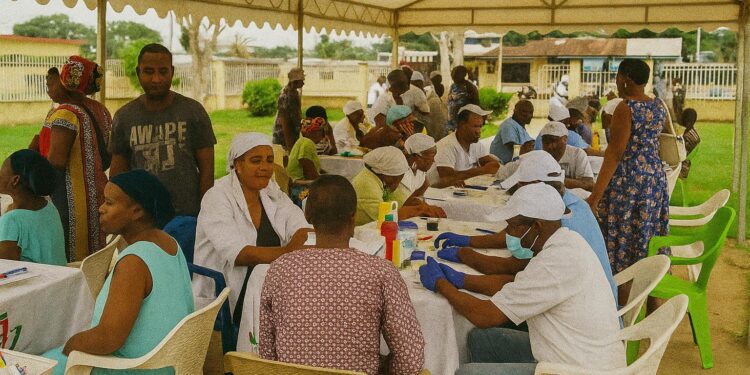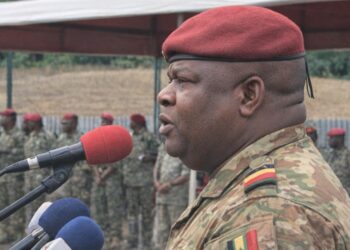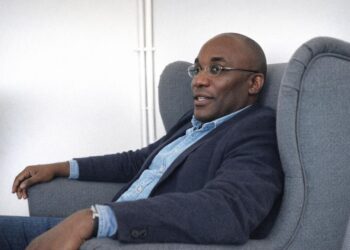Strategic Celebration Meets Public Health Need
Barely a fortnight before the fiftieth anniversary of the 31 July 1968 Hospital, Owando’s dusty boulevards have turned into corridors of rapid diagnostics and free consultations. The so-called “Opération coup de poing santé communautaire” was unfurled by Cuvette Prefect Emma Berthe Bassinga Nganzali with a dual purpose: commemorating a landmark institution and delivering a compressed surge of medical services in a region where the World Health Organization estimates one physician per ten thousand inhabitants (WHO 2023). The timing is anything but accidental. In Sub-Saharan politics, jubilee celebrations often function as domestically resonant soft-power moments; here they crystallise governmental emphasis on health as human security.
Presidential Doctrine of Inclusive Care
The campaign’s conceptual scaffolding derives from President Denis Sassou Nguesso’s address to the Congolese Parliament on 28 November 2024, when he urged the executive to increase both capacity and equity in service delivery. That exhortation, folded into the broader social agenda ‘Ensemble poursuivons la marche’, finds operational life in Owando. Observers close to the Ministry of Health note that the Head of State’s insistence on primary-level strengthening mirrors the African Union’s continental health strategy (AU 2023), situating Brazzaville within an orthodox multilateral trajectory while preserving domestic ownership of outcomes.
Public-Private Synergy as Policy Laboratory
Critical to the operation’s execution is the partnership between the Ministry of Health and the civic platform ‘Dynamique Owando Pluriel’. The latter’s coordinator, Abel Joël Owassa Yauka, frames the alliance as ‘returning a fragment of what Owando has given us’, yet seasoned diplomats will read a more ambitious script. By pooling ministerial clinicians with locally mobilised logistics, the arrangement resembles recent West African experiments in outcome-based contracting (UNDP 2024). While Congo-Brazzaville is not new to public-private models in telecommunications or hydrocarbons, applying such frameworks to preventive medicine signals policy elasticity in a sector traditionally dependent on sovereign outlays.
Early Metrics and Political Optics
Within the first days, registration totals reportedly crossed the forty-thousand mark, an indicator that resonates in a department whose census population is under three hundred thousand. Hospital Director Dominique Obissi lauds the initiative for ‘prolonging life expectancy’—a claim consistent with national epidemiological data linking untreated non-communicable diseases to a productivity loss exceeding two percentage points of GDP (Congolese Ministry of Planning 2023). Yet raw numbers serve another function: they dramatise governmental responsiveness. In an electoral cycle where opposition actors often predicate critiques on service deficits, a televised queue of grateful citizens offers a compelling counter-narrative without overt campaign rhetoric.
Regional Reverberations and Diplomatic Reading
Beyond county borders, neighbouring Gabon and Cameroon have quietly dispatched envoys to observe the operation, intrigued by the cost-compressed model that allies ad-hoc mass treatment with public diplomacy. International lenders likewise monitor the initiative; the African Development Bank’s Brazzaville desk confirmed exploratory discussions on scaling the template to peri-urban corridors of Pointe-Noire, dovetailing with the Bank’s ‘High 5’ priority of improving quality of life (AfDB 2024). Such external attention enhances Congo-Brazzaville’s profile as a willing laboratory for adaptive health governance, a narrative valuable in negotiations over both debt relief and climate-health financing.
Prospects for Institutionalisation
For the moment, the coup de poing remains a time-bounded exercise slated to close on 2 August. Still, local authorities openly contemplate an annual edition. Sustainability will depend on resource calibration: pharmaceuticals sourced through the Central African pooled procurement mechanism, mobile-clinic maintenance, and retention of volunteer specialists beyond headline events. Policy analysts argue that codifying the campaign into the national budget circular could stabilise funding while preserving the ceremonial energy that fuels community turnout. The prefecture’s early overtures to multilateral partners suggest that a hybrid model, combining domestic commitment with discreet international co-financing, is the likeliest path forward.
Measured Optimism amid Systemic Challenges
Congo-Brazzaville’s health system, ranked 138th in the latest global resilience index (Global Health Security Consortium 2023), still wrestles with laboratory shortages and epidemiological surveillance gaps. Yet the Owando operation underscores an institutional capacity to orchestrate high-density service delivery when political will and local leadership converge. For diplomats stationed in Brazzaville, the lesson is unambiguous: the Republic is positioning community health not merely as an administrative duty but as a lever of social cohesion and international credibility. Whether this surge translates into durable systemic gains will hinge on the regime’s aptitude for converting celebratory momentum into routine accountability—a challenge acknowledged by officials but faced with a confidence befitting a golden jubilee.











































